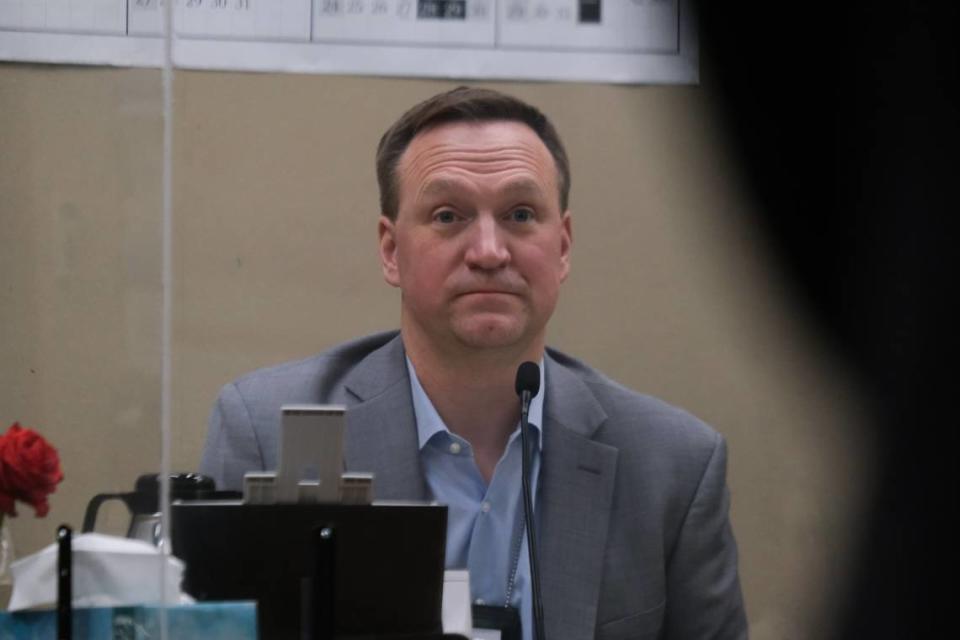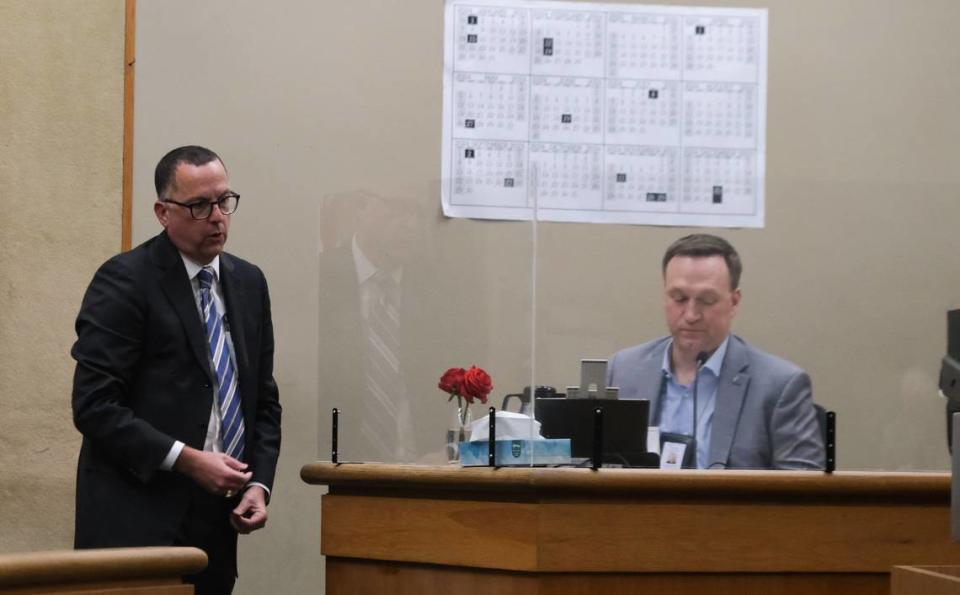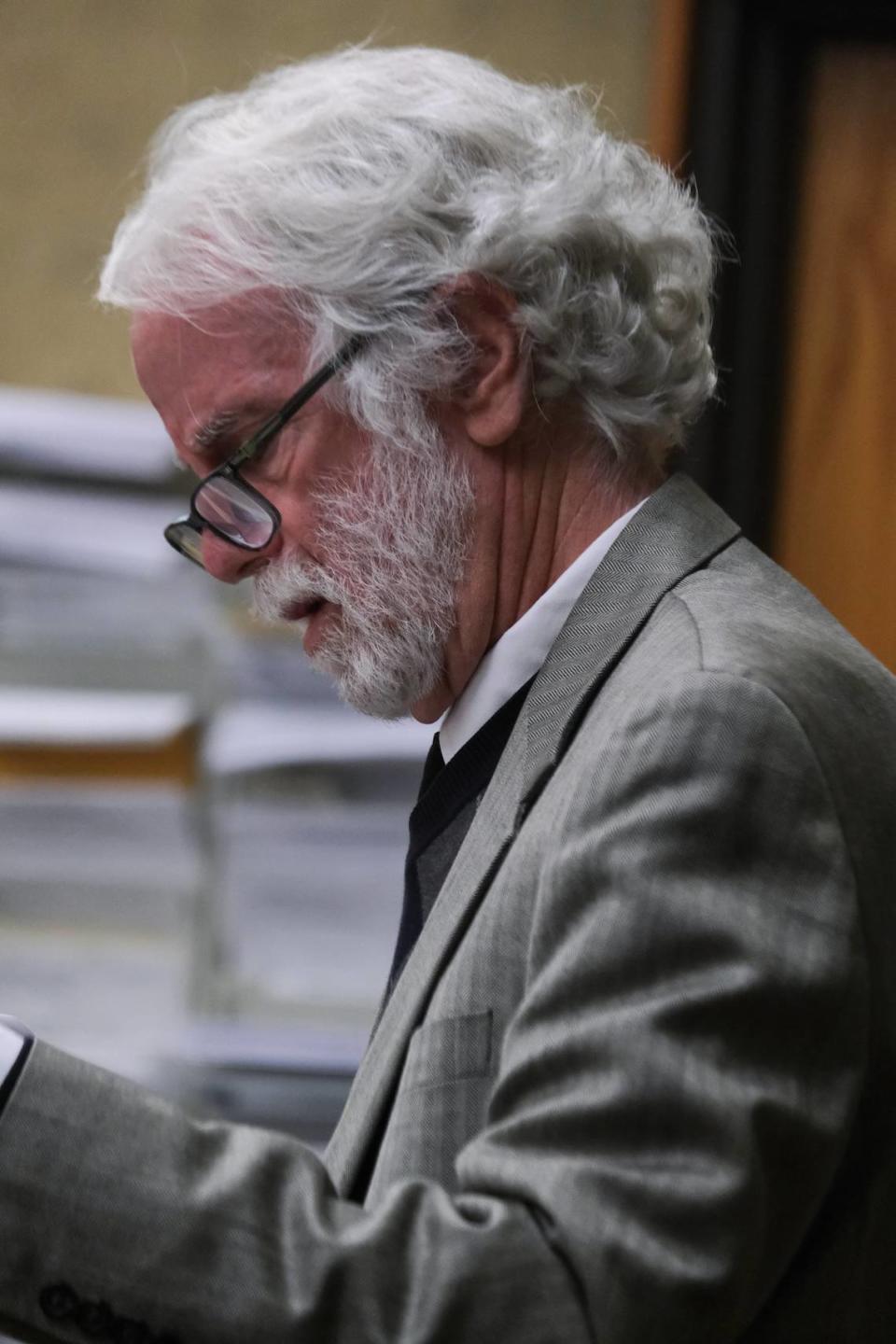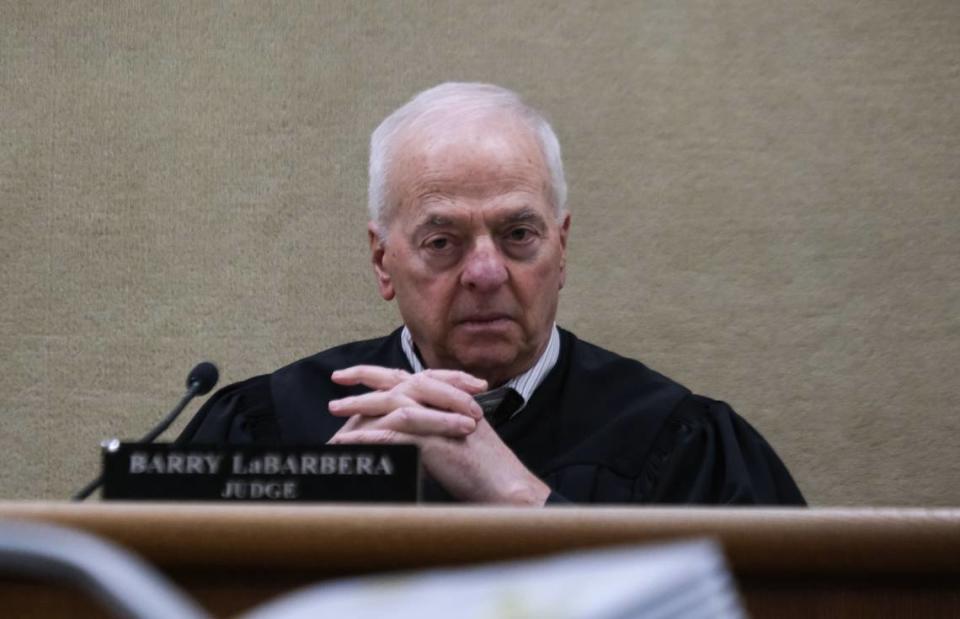Fentanyl killed SLO County man, despite presence of other drugs, pathologist says
Despite having other substances in his system, fentanyl was the drug that killed the Templeton man who died of an overdose in 2022, a forensic pathologist testified in court Thursday.
Quinn Hall, 30, was found dead behind the old Animal Services building on Kansas Avenue on Oct. 27, 2022. The day before, 50-year-old Brandi Turner is accused of selling the fentanyl that prosecutors say killed him.
Now she’s on trial for his murder.
Prosecutors argued Turner knew the risks of fentanyl before selling it, while her defense maintained she was not at fault because Hall was a regular fentanyl user who was also aware of the danger.
Court proceedings began with testimony from Evan Matshes, a forensic pathologist for San Luis Obispo County Coroner’s Office who was deemed an expert witness by the court. He performed the autopsy on Hall.
Matshes said he determined that fentanyl was the cause of Hall’s death, while ruling that the manner of death was “accidental.” Matshes said an accidental manner of death simply means the death was unintentional and has nothing to do with how the death can be pursued in the criminal court system.

Fentanyl, alcohol, GHB found during autopsy, expert says
Hall had 13 nanograms per milliliter of fentanyl detected in his blood at the time Matshes performed the autopsy on Nov. 1, 2022, Matshes testified.
He said this was “a lot” of fentanyl but added that someone’s tolerance of the drug can depend on the potency of a particular dose and the person’s past usage of the drug.
“In theory any amount can be lethal,” Matshes said. “It’s a very dangerous drug.”
Matshes said fentanyl is a highly potent painkiller usually prescribed to people in extreme pain, cancer patients or those at the end of their life. It’s 100 times more potent than morphine and 50 times more potent than heroin, he said.
In addition to fentanyl, Hall had a blood alcohol content of 0.04 — half the legal limit to drive — and 14.6 micrograms per milliliter of GHB in his blood.
Hall’s urine also tested positive for 8.3 micrograms per milliliter of GHB. Matshes said GHB can naturally produce in the body’s blood after death, so testing urine indicates whether the drug was taken before death.
He said the amount of GHB in Hall’s system was “a relatively not large value” and said that it alone did not cause Hall’s death.
Matshes said GHB and alcohol contributed to Hall’s death but fentanyl was the cause.
“But for the fentanyl, there was no reason for his death,” he testified.
Matshes said there was no way to accurately estimate how much fentanyl Hall actually took before his death because the drug’s concentration in the blood can change over time. In this case, Hall had been dead for five days before the autopsy.

Fentanyl causes slow death, expert says
Fentanyl causes death because it slows down the body’s breathing and heart rate, Matshes said.
The effects of fentanyl can hit someone quickly, he said, but the actual death is slow and can take minutes.
In Hall’s case, he was found on his knees in a fetal position with his forehead on the ground. He was holding a straw associated with smoking fentanyl in his right hand, had a lighter and tinfoil also associated with smoking fentanyl near his left, and another straw was found underneath him.
Matshes said the fact that Hall was still holding the fentanyl paraphernalia “tells us how quickly fentanyl effects can hit a person even if death is prolonged.”
A pool of blood was concentrated underneath Hall’s face, which Matshes said was part of the dying process. Blood settles in accordance with gravity, he said.
Hall’s lungs were full of fluid and weighed two pounds each, Matshes said, which meant “death couldn’t have been instant.” For context, a normal lung weighs from a half pound to a pound.
Matshes estimates Hall was dying for several minutes, but less than an hour.
Two biological byproducts of fentanyl were also found in Hall’s system, Matshes said, which meant Hall’s body had tried to process the drug and he did not die immediately.

Detective: Texts show friendship ‘dissipating’ over money
San Luis Obispo County Sheriff’s Office Det. Jonathan Jones finished his testimony Thursday by clarifying text messages sent between Turner and Hall in the months leading up to Hall’s death.
Jones testified Wednesday that Turner and Hall had been engaged in a romantic relationship and Turner seemed to care for him, according to the texts and messages she sent.
San Luis Obispo County Deputy District Attorney Greg Devitt pointed out that in an Oct. 4, 2022, exchange, Turner told Hall to stay away from fentanyl, but then 15 days later on Oct. 20, 2022, she was offering and agreeing to sell him the drug.
Then, Devitt noted, the following exchange occurred on Oct. 25, 2022:
Hall: “Hey I have a paycheck $600 so I’ll definitely be good for the $100.”
Turner: “F--k you and your check this isn’t a bank bring cash or don’t come.”
Hall: “100%”
Turner: “Like s--t dude you tried f--king me over last time by saying let me try first I have 100$ you didn’t have s--t.”
Hall: “I gave him some money for that hit.”
Hall: “I think it was like $7 I know that lame. But I’m coming back with at least $100 or more.”
Hall: “I got robbed right before too.”
Jones said the exchange did reflect the friendship between the two seemingly “dissipating” in the days before Hall died.
Turner’s attorney Jeffry Radding pointed out that the only tension between Turner and Hall was largely centered around Hall’s “unreliability with money.”
Jones said that money issues are common in relationships between people who are addicted to drugs, to which Radding responded that money issues were common in relationships generally and Jones agreed.
Court will resume Friday at 1:30 p.m. with more witness testimony.


